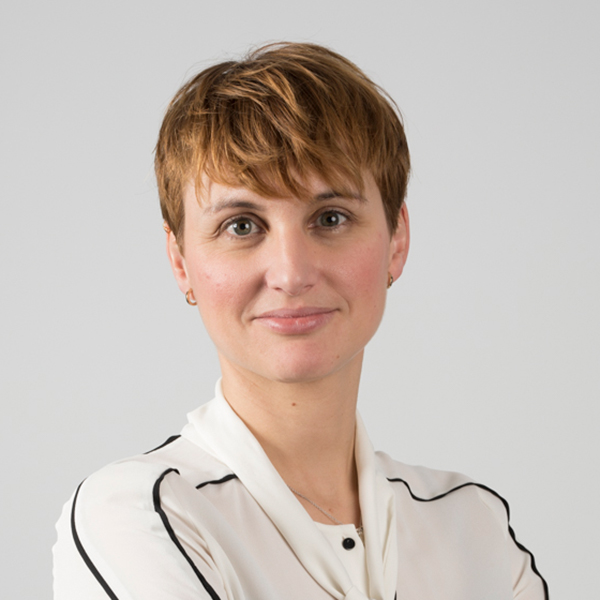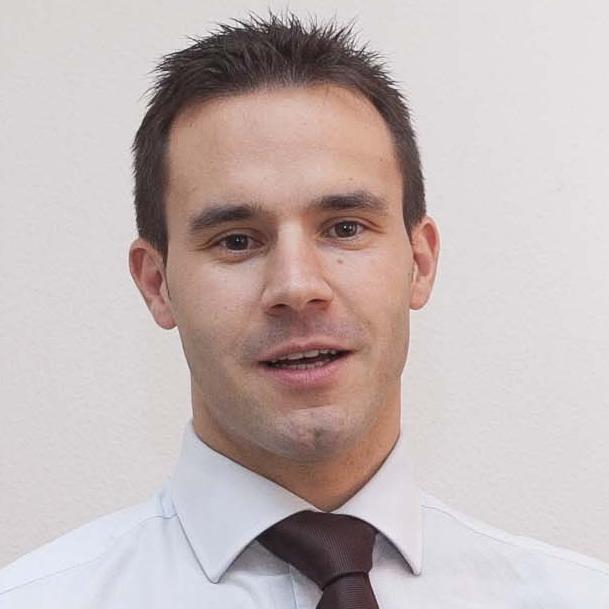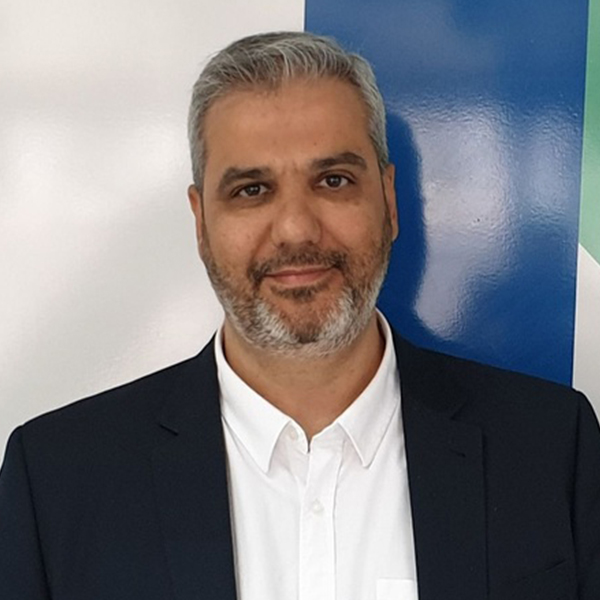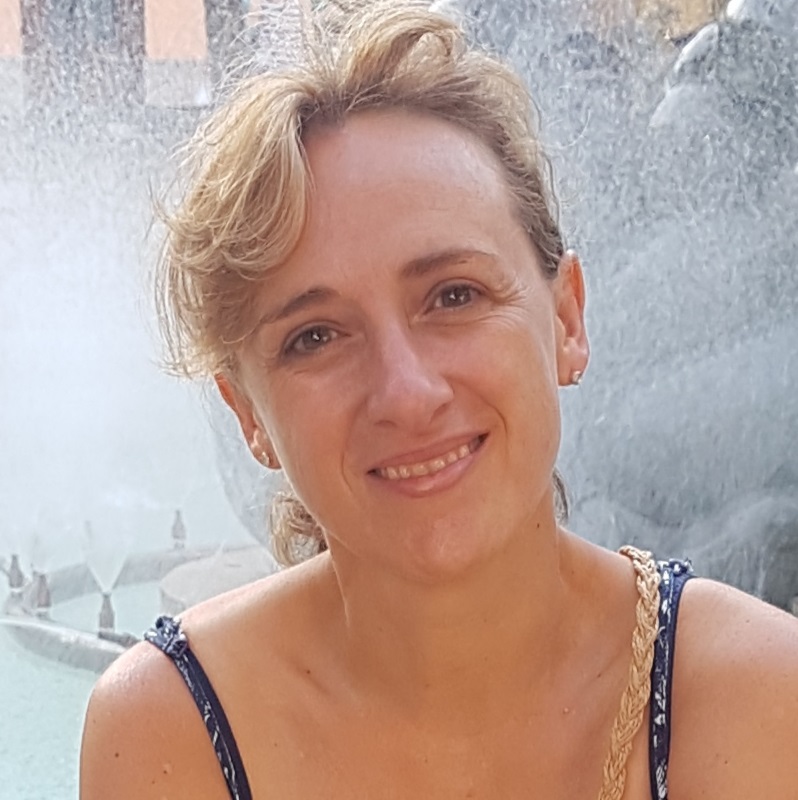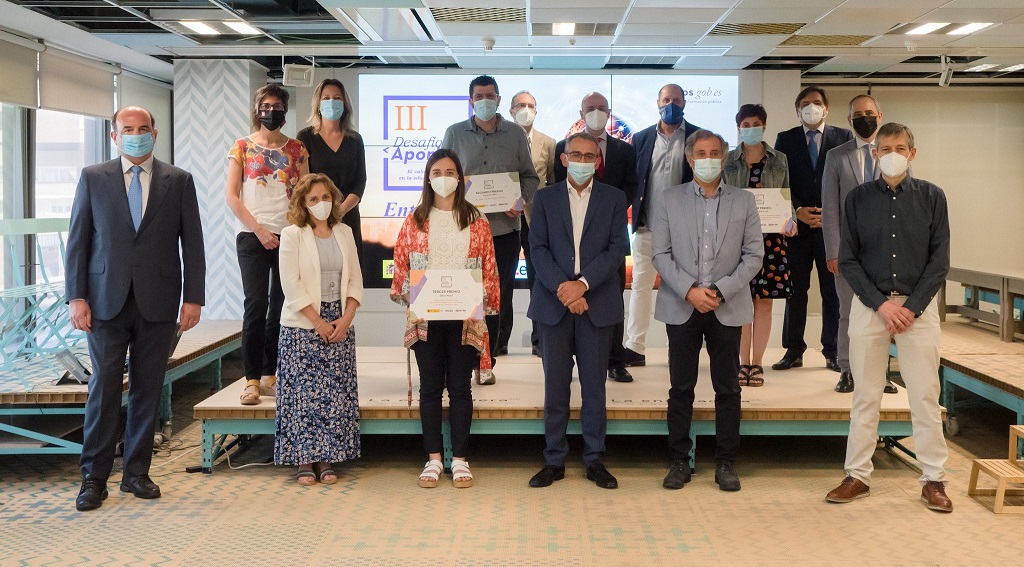Aporta Challenge 2020
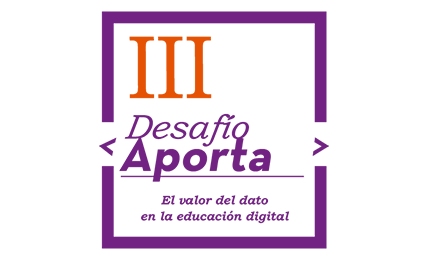
With “The value of data in digital education” as its theme, the aim of this third iteration of the of the Aporta Challenge is to recognise ideas and prototypes which identify new opportunities for capturing, analysing and utilising data intelligence to develop solutions in the field of education.
The objective is to promote the use of data in order to respond to key challenges: the efficient use of digital technologies in the teaching and learning process; addressing the digital divide and the problems of data security and privacy; the need for teachers to acquire new skills so that students can learn more and better; the urgent need to improve understanding of the current context in order to ensure appropriate decision-making by educational authorities; the ever greater need to acquire new skills related to data analysis and emerging technologies, etc.
The aim of the Aporta Challenge 2020 is to recognise ideas and associated prototypes which identify new opportunities for capturing, analysing and utilising data intelligence to develop solutions in the field of education.
The Aporta Challenge takes place in two phases
- PHASE I: Ideas competition
- PHASE II: Prototype development and in-person presentation.
Individuals or legal entities from within the European Union can take part in Phase I, either individually or jointly as a team. In the case of a legal entity or team, a spokesperson must be chosen.
Although only one idea per participant will be accepted, the same participant may submit various ideas as a member of different teams.
Every idea and associated prototype must be presented in Spanish and must satisfy the following conditions:
- It must be in keeping with the aim of the competition.
- It must be associated with the use of at least one source of data generated by public authorities, whether national or international, as well as other data from public or private entities, on an optional basis.
- It must be accompanied by a descriptive video, in Spanish, between 120 and 180 seconds in length. The video must be recorded in Spanish and horizontally, preferably in MP4 format. The size of the file must not exceed 25Mb.
- It must be original and must not have received any awards previously.
The representatives of the ten ideas chosen in the first phase will take part in Phase II. Prizes will be awarded to the three prototypes receiving the highest score from the panel, according to the stated assessment criteria. The prizes will be:
- First place: 4.000 €
- Second place: 3.000 €
- Third place: 2.000 €
To take part in Phase I of the Aporta Challenge 2020 participants will need to fill in the application form available on the Red.es website, which must be accessed with an electronic certificate.
In order to fully understand and assess the scope of the idea proposed idea, participants need to include the following information in the form:
- Proposal title.
- Description of the idea: Summary of the main aspects to be highlighted (max. 250 words).
- Type of solution: Details need to be given of the final format of the project, that is, whether it is a service, a study, a website, an application for mobile devices, a visualisation, etc.
- Differential value: Description of two differentiating aspects that highlight the value of the proposed idea.
- Evidence of the relevance of the proposed idea: Argumentation showing the extent to which the proposed idea responds to the current situation, has a marked innovative character, is original or offers a critical and constructive perspective, based on lessons learned (max. 250 words).
- Quality and clarity of the proposed idea: Explanation that the proposed idea has a concise objective, is well-structured, reflects the experience of the candidate(s) in the specific area on which it is based, etc. (max. 250 words).
- Useful sources: Precise references to the data sources used and, where applicable, the exact transformations of the data associated with the idea proposed. (max. 250 words).
- Improving quality of life for vulnerable groups: Explanation of how the idea attempts to reduce the digital divide existing for social or economic reasons, such as, for example, the gender divide or access problems. (max. 250 words)
The deadline for submitting ideas is 18 November 2020 at 13:00.
Applications received after that date will not accepted, and nor will those received by any means other than the specific form provided for this competition on the website.
Remember to submit your idea well in advance, in order to deal with any last-minute problems which may arise.
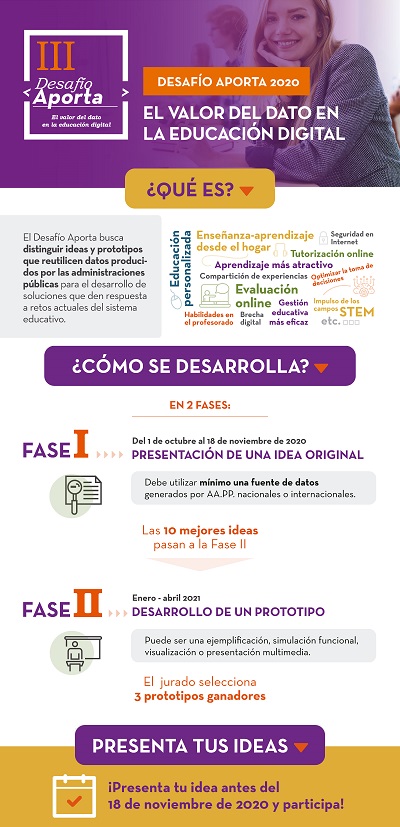
Phase I: Ideas competition
Phase I consists of the detailed description of an idea which identifies new opportunities for capturing, analysing and utilising data intelligence to develop solutions in the field of education.
The idea must be described using the relevant form, available on the Red.es website.
After the assessment process, the ten best ideas will be chosen and their originators will go through to Phase II .
Phase II: Prototype development and in-person presentation
During Phase II, the originators of the chosen ten best ideas will produce a prototype, which may consist of one or more of the following proposals:
- A functional solution which simulates, represents or enables interaction, or makes it possible to validate the preliminary hypotheses for the product.
- Functional exemplification based on extrapolation from an existing solution, for example, in another sector, country, field, etc.
- Visualisation or dynamic graphic which simulates the proposed solution, service or application.
- Multimedia solution which enables the proposed solution to be exemplified as a tangible prototype.
The development of the prototypes will begin when the ten best ideas are published and end on the data set for the in-person presentation, which will always be at least twelve weeks after the announcement of the finalists.
The jury is made up of representatives of the Public Administrations and of organizations and companies, both in the ICT field and in the educational field. The participants, collected in resolution of the general director of red.es, are the following:
Assessment PHASE I: Ideas competition
The ideas submitted will be assessed by a panel made up of representatives from both the ICT and education sectors.
Each proposal will be given a score from 0 to 10 points. The following aspects will be assessed:
- Relevance: an idea for the education system which is current, innovative and original, and which offers a critical, constructive and stimulating perspective, based on lessons learnt. Up to a maximum of 2 points.
- Overall quality and clarity of the proposed idea: concise objective, well structured, reflecting experience in the specific area of education on which the idea is based. Up to a maximum of 2 points.
- Impact of the proposed idea on improving the education system: includes clear evidence of its impact on improving the quality of teaching, on the pursuit of excellence and equity in education, and on promoting inclusive education. Up to a maximum of 2 points.
- Useful sources: referencing and precision as regards the sources used and, where applicable, the exact transformations of the data associated with the idea proposed. Up to a maximum of 2 points.
- Improving quality of life for vulnerable groups: consideration will be given to how the idea attempts to reduce the digital divide existing for social or economic reasons, such as, for example, the gender divide or access problems. Up to a maximum of 2 points.
Assessment PHASE II: Prototype development and presentation
The ten proposals receiving the highest score will go through to Phase II
In the place and on the date indicated beforehand, each participant will give a presentation of his or her prototype to the panel, lasting a maximum of twelve minutes. After that, each spokesperson will have to answer the panel’s questions on any aspect of their proposal.
This presentation and the answers to the questions posed will enable the panel to conduct a final assessment of the prototypes and select the winners. In Phase II the following aspects will be assessed:
- Ease of use: simplicity of the prototype proposed and the ease with which the user will be able to achieve the specified objectives when first using the application. Up to a maximum of 3 points.
- Technical quality of the prototype: the faithfulness of the prototype to the idea proposed and to the final solution which is intended to be developed and the level of interaction allowed by the simulation proposed. Up to a maximum of 3 points.
- Viability: taking into account how difficult it will be to introduce and the possibility of developing and replicating the end product. The prior analysis of possible means of financing, continuity of the development until the final phase and sustainability over time will also be assessed. Up to a maximum of 4 points.
Once all proposals have been assessed, the panel will decide the three winning proposals depending on the score obtained. The winning prototypes will initially be announced during the Aporta Conference, which will take place, preferably, the day following the presentation of the prototypes.
The panel’s decision is final.
Below are the 10 ideas that have received the highest score from the jury in PHASE I: Contest of ideas of the Challenge Aporta 2021 “The value of data in digital education”. These 10 applications are finalists in PHASE II: Development of a prototype.
Many thanks to all the participants for their effort, which has been reflected in the high quality of the proposals presented.

EducaWood is a socio-semantic web portal that allows to explore the forest information of an area of the Spanish territory and to enrich it with tree annotations. Teachers can propose environmental learning activities contextualized to their environment. Students carry out these activities during field visits by means of tree annotations (location and identification of species, measurements, microhabitats, photos, etc.) through their mobile devices. In addition, EducaWood allows virtual field visits and remote activities with the available forestry information and annotations generated by the community, thus enabling its use by vulnerable groups and in Covid scenarios.
EducaWood uses sources such as the Spanish Forest Map, the National Forest Inventory or GeoNames, which have been integrated and republished as linked open data. The annotations generated by the students' activities will also be published as linked open data, thus contributing to community benefit.
Team: Jimena Andrade, Guillermo Vega, Miguel Bote, Juan Ignacio Asensio, Irene Ruano, Felipe Bravo and Cristóbal Ordóñez.
This proposal presents a data education web portal for students and teachers focused on the Sustainable Development Goals (SDGs). Its main objective is to propose to its users different challenges to be solved through the use of data, such as 'What were women doing in Spain in 1920' or 'How much energy is needed to maintain a farm of 200 pigs'.
This initiative uses data from various sources such as the UN, the World Bank, Our World in Data, the European Union and each of its countries. In the case of Spain, it uses data from datos.gob.es and INE, among others.
Team: María Concepción Catalán, Asociación Innovación y Derechos Humanos (ihr.world).
UniversiDATA-Lab is a public and open portal whose function is to host a catalog of advanced and automatic analyses of the datasets published in the UniversiDATA portal, and which is the result of the collaborative work of universities. It arises as a natural evolution of the current "laboratory" section of UniversiDATA, opening the scope of potential analysis to all present and future datasets/universities, in order to improve the aspects analysed and encourage universities to be laboratories of citizenship, providing a differential value to society.
All the datasets that universities are publishing or will publish in UniversiDATA are potentially usable to carry out in-depth analyses, always considering the respect for the protection of personal data. The specific sources of the analyses will be published on GitHub to encourage the collaboration of other users to contribute improvements.
Team: Rey Juan Carlos University, Complutense University of Madrid, Autonomous University of Madrid, Carlos III University of Madrid and DIMETRICAL The Analytics Lab S.L.
This web application pursues the learning of art history through different educational environments. It allows students to visualize and perform geotagged tasks on a map. Teachers can propose new tasks, which are added to the public repository, as well as select the tasks that may be more interesting for their students and visualize the ones they perform. On the other hand, a mobile version of LocalizARTE will be developed in the future, in which the user will need to be close to the place where the tasks are geotagged in order to perform them.
The open data used in the first version of LocalizARTE comes from the list of historical monuments of Castilla y León, DBpedia, Wikidata, Casual Learn SPARQL and OpenStreetMap.
Team: Pablo García, Adolfo Ruiz, Miguel Luis Bote, Guillermo Vega, Sergio Serrano, Eduardo Gómez, Yannis Dimitriadis, Alejandra Martínez and Juan Ignacio Asensio.
This project is based on the creation of a dashboard that allows to view information from the PISA report, conducted by the OECD, or other educational assessments along with data provided by datos.gob.es of socioeconomic, demographic, educational or scientific scope. The objective is to detect which aspects favour an increase in academic performance using a machine learning model, so that effective decision-making can be carried out. The idea is that schools themselves can adapt their educational practices and curricula to the learning needs of students to ensure greater success.
This application uses various open data from INE, the Ministry of Education and Vocational Training or PISA Spain.
Team: Antonio Benito, Iván Robles and Beatriz Martínez.
This proposal pursues two objectives: on the one hand, to improve the training of secondary school students in digital skills, such as the control of their digital profiles on the Internet or the use of open data for their work and projects. On the other hand, the use of data generated by students in an e-learning platform such as Moodle to determine patterns and metrics to personalize learning. All of this is aligned with the SDGs and the 20-30 Agenda.
Data used for its development come from the WHO and the datathon "Big Data in the fight against obesity", where several students proposed measures to mitigate global obesity based on the study of public data.
Team: Carmen Navarro, Nazaret Oporto School.
Data obtained with empirical Artificial Intelligence techniques such as big data or machine learning offer correlations, not causes. iteNleanring bases its technology on scientific models with evidence, as well as on data (from sources such as INE or the Basque Institute of Statistics - Eustat). These data are curated in order to assist teachers in decision making, once DataLAB identifies the specific needs of each student.
DataLAB Mathematics is a professional educational tool that, based on neuropsychological and cognitive models, measures the level of neurodevelopment of the specific cognitive processes developed by each student. This generates an educational scorecard that, based on data, informs us of the specific needs of each person (high ability, dyscalculia...) so that they can be enhanced and/or reinforced, allowing an evidence-based education.
Team: iteNlearning, Ernesto Ferrández Bru.
2020 has been the year in which podcasts have taken off as a new digital format for the consumption of different areas of information. This idea seeks to take advantage of the boom of this tool to use it in the educational field so that students can learn in a more enjoyable and different way.
The proposal includes the official syllabus of secondary or university education, as well as competitive examinations, which can be obtained from open data sources and official websites. Through natural language processing technologies, these syllabi are associated with existing audios of teachers on history, English, philosophy, etc. on platforms such as iVoox or Spotify, resulting in a list of podcasts by course and subject.
The data sources used for this proposal include the Public Employment Offer of Castilla La Mancha or the educational competences in different stages.
Team: Adrián Pradilla Pórtoles and Débora Núñez Morales.
A MIP (Marked Information Picture) is a new interactive information tool, consisting of a series of interactive layers on static images that facilitate the retention of information and the identification of elements.
This project consists of a service for creating MIPs quickly and easily by manually drawing regions of interest on any image imported through the web. The created MIPs will be accessible from any device and have multiple applications as a teaching, personal and professional resource.
In addition to manual creation, the authors have implemented an automatic GeoJSON to MIP data converter in Python. As a first step, they have developed a MIP of Spanish provinces from this public database.
Team: Aday Melián Carrillo, Daydream Software.
The Frischluft (Fresh Air) project is a hardware and software solution for measuring environmental parameters in the school. It aims to improve the thermal comfort of the classrooms and increase the protection of the students through intelligent ventilation, while consolidating a tractor project that drives the digital transformation of the school.
This proposal uses data sources from Zaragoza City Council on CO2 levels in the urban environment of the city and international data repositories to measure global emissions, which are compared through statistical techniques and machine learning models.
Team: Harut Alepoglian and Benito Cuezva, German School Cultural Association, Zaragoza.
The prototype defense session took place on June 22, 2021, in an online format. The 10 finalists presented to the jury their proposals to drive improvements in the education sector, based on open data.
The first prize went to UniversiData-Lab, a public portal for the advanced and automatic analysis of datasets published by universities. It is a complementary project to UniversiData: while the objective of UniversiDATA is to facilitate access to high-quality university datasets with standard formats and criteria, the objective of UniversiDATA-Lab is to enhance the value of these datasets, carrying out advanced and automatic analysis of them, taking advantage of the homogeneity of the content.
UniversiDATA-Lab offers a catalogue of applications created thanks to the application of advanced analysis and visualisation techniques, carried out in R language. In the online session they showed the analysis of interurban commuting, the analysis of CO2 generated by student commuting and the analysis of gender differences in the different university branches.
These analyses can be instrumental in helping universities to make decisions related to administration and management, with major benefits for the environment, the economy and society.
Team: Rey Juan Carlos University, Complutense University of Madrid, Autonomous University of Madrid, Carlos III University of Madrid and DIMETRICAL The Analytics Lab S.L.
MIP Project, the second prize winner, is an online service where any user can register and start creating MIPs (Marked Information Pictures). A MIP is an information format consisting of a series of interactive layers over static images that facilitate the retention of information and the identification of elements.
The prototype includes a Python converter from GeoJSON open data to the format needed to develop interactive atlases. It also offers a public cloud of freely accessible MIPs for consultation, study or independent learning.
Thanks to this tool, teachers can create MIPs quickly and easily by manually drawing regions of interest on any image imported through the web. A more enjoyable way to educate and to attract students' attention more easily.
Team: Aday Melián Carrillo, Daydream Software.
EducaWood is a socio-semantic web portal that allows you to explore the forest information of an area of Spanish territory and enrich it with tree annotations. Its aim is to promote environmental learning activities, one of the main aspects of UNESCO's "Education for Sustainable Development Goals", which is part of the Spanish Government's Agenda 2030.
Thanks to the use of EducaWood, teachers can propose activities that students can carry out either face-to-face or online (through virtual field visits). In the face-to-face modality, students visit natural areas and make annotations of trees, such as location and identification of species, measurements, microhabitats, photos, etc. These annotations become available to the whole community as open data, thus enabling the application to be used remotely. These data are also enriched with other sources such as the Spanish Forest Map, the National Forest Inventory, GeoNames or DBPedia.
EducaWood helps students to learn more about their environment, while promoting ecological awareness.
Team: Jimena Andrade, Guillermo Vega, Miguel Bote, Juan Ignacio Asensio, Irene Ruano, Felipe Bravo and Cristóbal Ordóñez.

